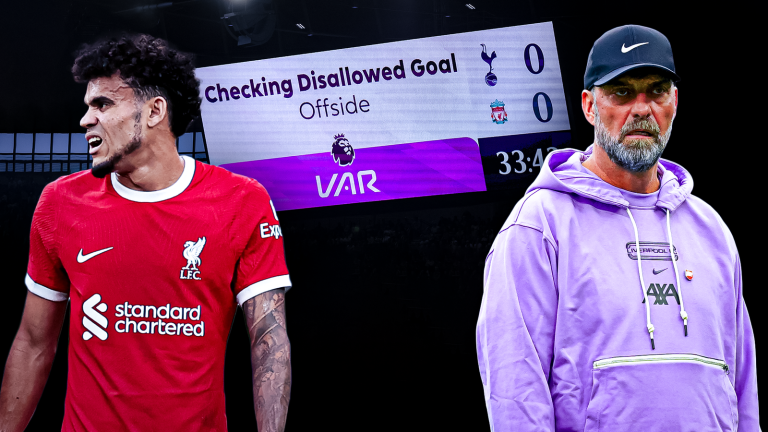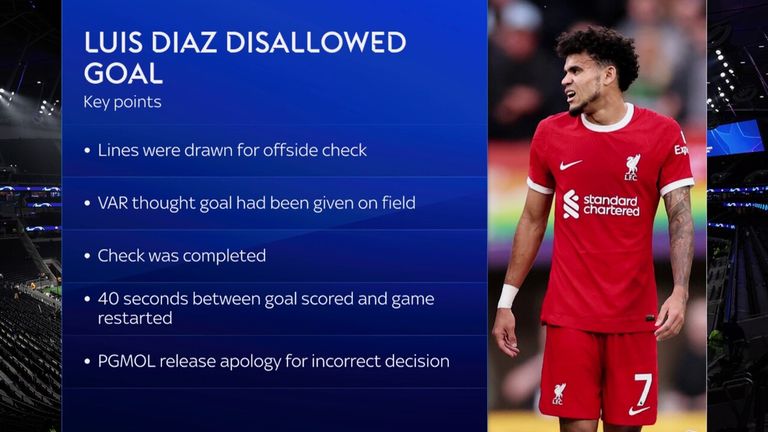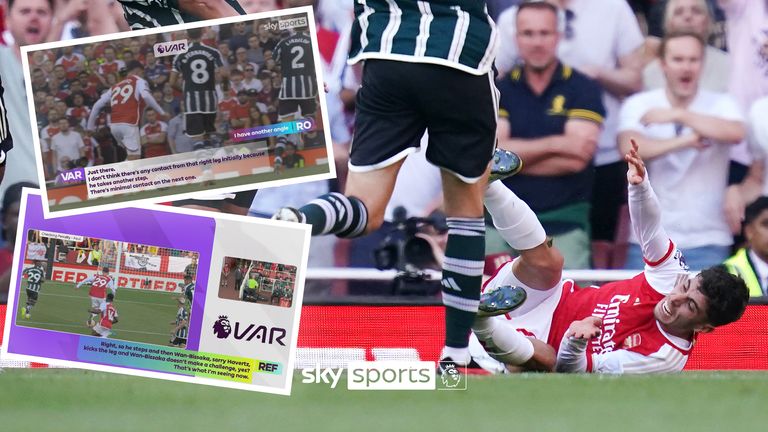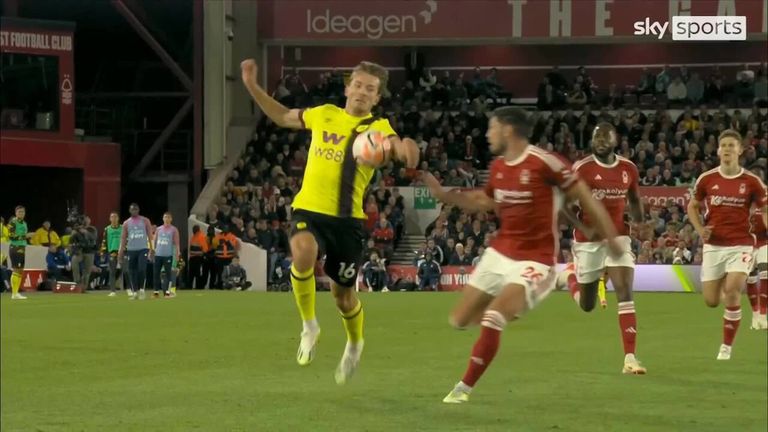The Premier League has admitted there have been 20 wrong decisions using the Video Assistant Referee (VAR) this season, but insists, according to a new poll, that a “majority” of fans are in favor of the technology – which they claim has led to a 14 per cent increase in correct decisions. .
Details of this survey, conducted by the Premier League, have not been announced, but Tony Scholes, the Premier League's chief football officer, sat down with chief correspondent Rob Dorsett to discuss VAR's performance this season and plans to improve the technology.
Do the statistics show that VAR works?
The latest Premier League statistics, before VAR was introduced, show that 82% of refereeing decisions were correct. Now, since the advent of VAR, 96% of decisions are correct.
“VAR is, and continues to be, a very effective tool in supporting match officials on the pitch,” says Scholes.
Two years ago, the Premier League established an independent Key Match Incident Panel (KMI panel), which assesses all the major decisions made by referees in every Premier League match.
The panel is made up of former players, coaches and referees, who provide their opinions so that the Premier League and Professional Match Officials Limited (PGMOL) can improve standards.
“The purpose of this committee is to analyze and provide an opinion on every major decision made by the match officials in each of the 380 matches,” Scholes explains.
“The results of this analysis are used to assist in the training of referees, and to help give PGMOL management a view of where the game, as represented by these former players and coaches, is not consistent with the approach taken by referees.”
Scholes insists that the committee's conclusions, after reviewing all refereeing decisions in League One, prove that VAR has improved decision-making since its introduction for the 2019/20 season.
What about the statistics for this season?
This season, the KMI Committee decided the following:
- VAR has intervened correctly on 57 occasions.
- There have been 20 VAR fouls so far – but the Premier League says 17 of them were due to VAR failing to intervene when the committee felt it should have done so.
- There have been three 'wrong' decisions this season when VAR has intervened:
- One of these errors was the factual error – when Luis Diaz goal for Liverpool The ruling against Tottenham was overturned, when the VAR failed to correctly communicate its decision that Diaz was offside when he scored.
- There were two 'self-inflicted' fouls when VAR intervened (and the committee felt it should not have done so):
- Sander Berge's goal against Nottingham Forest in September which would have put Burnley 2-1 up, but the panel felt the goal was incorrectly disallowed for handball after a VAR check.
- Also in September – when Arsenal played Manchester United and Anthony Taylor provided a goal Penalty kick for Aaron Wan-Bissaka's foul on Kai Havertzonly to overturn the penalty kick decision because the VAR felt the call was not enough to bring down Havertz.
Does the English Premier League accept that there are problems with VAR technology?
Yes. Scholes says there are two main issues he wants to address with VAR in the future.
“I think those two elements affect the reputation of the whole VAR technology. The first is the amount of time it takes to verify decisions.
“We do a very high number of checks, and we take a long time to do them as well. This is somewhat understandable, given the level of scrutiny these people are under. But reviews are very time consuming and impact the flow of the game and we are very aware of that and the need to Improving that speed while always maintaining accuracy.”
The second area is the 'in-pitch experience' for fans, which Scholes says is simply not good enough.
“It's not good enough. We know it's not. It's affecting fans' enjoyment of the game and we know it needs to change.”
But Scholes continues to say that the main frustration with the Premier League is its inability to turn this around.
“We are restricted by the International Football Association Board (IFAB) at the moment,” he laments. “The IFAB is very clear about their rules in terms of what we can and cannot say, whether during the VAR process or after the VAR process. We cannot play audio.
“My personal view is that we are on a journey and that we will reach a point where the video and audio will be played live and then played again afterwards to explain the decision.
“I don't know how far we are from that. That's not in our hands. That's what the IFAB has decided. But we will continue to put pressure on them to get to a place where VAR is open, transparent and informative for fans and all stakeholders as much as possible to do.” “
What are the Premier League and PGMOL doing to improve standards?
Scholes has revealed for the first time that the Premier League and PGMOL have begun a new project, aiming to identify the specialist VARs of the future who already act as referees at the bottom of the football pyramid.
“PGMOL identifies referees, who may be working in the Premier League or National League, who they believe possess the required attributes to be a good VAR referee.
“Those individuals selected will then undergo a training program with the aim of developing a group of specialist VARs to complement, not replace, members of the selected group who currently operate very effectively as a VAR, as well as on hurling.”
When will the Premier League introduce semi-automated offsides, as UEFA and FIFA have done?
Scholes says there are plans to introduce him, but that may not be in place at the start of next season.
Currently, two separate systems are being trialled, but he says there are technical concerns about both.
When a number of players are between the cameras and the ball, there were some decisions where it was difficult to determine whether a particular body part was that of an attacker or a defender.
Scholes says that until these concerns are completely eliminated, the Premier League will not consider introducing them.
“That's what we call edge cases. So, those cases where a lot of things are happening at once, you might have a lot of bodies in one place, which is the ability of the system to identify different parts of the body.”
“For the vast majority of cases, it won't be a problem. But we want to be clear with our competition before we introduce anything that will cause us unintended or unforeseen problems in other areas.”
Scholes says that if these issues can be resolved, the semi-automated offside technology could be put to clubs for a vote later this year.
Get Sky Sports on WhatsApp!
You can now start receiving messages and alerts for the latest breaking sports news, analysis, features and in-depth videos from our dedicated WhatsApp channel!
Find out more here…





